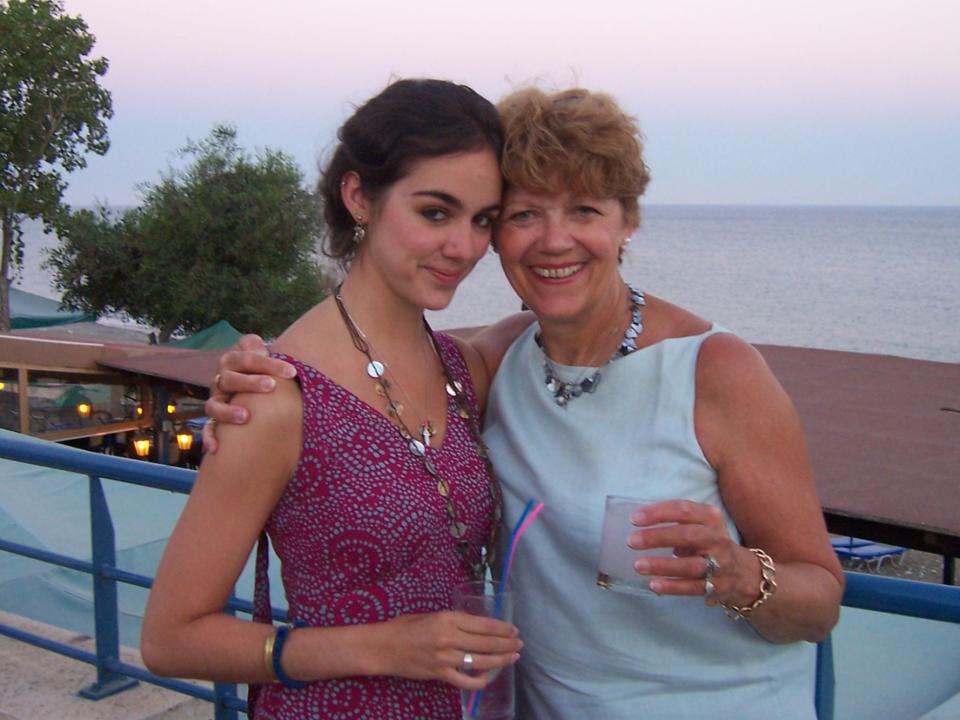‘I became an orphan in my twenties. This is how I learned to cope’

The last truly normal thing was making roast chicken in a cramped university kitchen in 2008. My then-boyfriend and I were 19: tipsy on cheap wine, celebrating fake Christmas together before heading back to our respective families for the holidays. My dad phoned. “Mum’s gone into hospital. We need to get you home now.”
She was only 62 when she died. It happened so fast it didn’t seem real – like an odd split in time – and I spent years pretending it wasn’t real at all. But your first big loss changes you fundamentally, and when I sat in my dad’s bedroom nine years later, in 2017, while he gently explained his terminal diagnosis, I wasn’t shocked.
In fact, and perhaps naively, I assumed that the only benefit of losing my mum was being better equipped to cope with dad’s coming death.
But although the beginning was unnervingly similar – same hospital, same hospice, same funeral lectern where I delivered both eulogies – the two grief processes weren’t comparable.
I’m an only child, so my dad’s death meant the end of my nuclear family unit and the collective memories that came with it. There is no “we”, “us”, or “our” anymore. I hold all the responsibility of remembering. It’s a heavy weight, and often an uncomfortable one.
Grief wears many faces, and while the most well known are somewhat passive – tears, sadness, vulnerability – grief can be selfish and mean. It breeds resentment of those who still have what you’ve lost.
When I didn’t speak about grief, my body took the brunt
I bristle at happy-looking people with their toddling grandchildren on walks in the park. I’m acutely jealous of family photos at weddings and birthdays. And then I’m ashamed and embarrassed at my bitterness. My mum would be too, I think.
This flitting between emotions is common in grief, but at the time I didn’t know it. Surface-level conversations felt impossible, yet delving into grief with acquaintances was cumbersome – what if they thought I was burdening them? – and often resulted in impromptu sobbing in unfamiliar bathrooms.
My middle ground was writing online about grief: a way to voice my feelings yet distanced enough that I could disengage if necessary. The danger of this, unfortunately, is becoming isolated, with only your own mind’s echo chamber for comfort.
When I didn’t speak about grief, my body took the brunt. My first grey hairs appeared when mum died, and grew faster after dad. My jaw locked shut for a fortnight; my hip ached regularly; it took a year to relearn a normal sleeping pattern.
Looking back, I’m fairly certain I developed complicated grief after my dad’s death – a diagnosable state of intense, insistent emotion. It’s not the same for everyone: some are spurred forward by grief, adopting a seize-the-day mentality, but for me the world just felt too much to face, and it was easier to embrace the isolation.
Ironically, then, it took a pandemic for me to befriend those in similar situations. Other ‘orphans’ – a word I actively use because despite the allusions to Oliver and Annie, I still need a name to hang the experience on.
Talking on WhatsApp with my orphan friends about inheritance tax woes, broken relationships, and the fear of anniversaries makes me realise how much of our grief is absurdly alike. It’s also such a relief to share the biggest, deepest things and know I won’t be awkwardly shunned in response.
Grief is an active process, and I’ve been learning how to navigate my own loss for 13 years. I know I can’t ever go back to “normal” – to that person happily cooking with her boyfriend – but I’ve often wondered who I might have been if they hadn’t died.
Mum never saw emojis or had the joy of commenting on all my social media. Dad would’ve had a lot to say about the current political climate.
My mental health might have been better; same with my anxiety, my self confidence, my happiness. I wonder who they’d be now, too. Mum never saw emojis or had the joy of commenting on all my social media. Dad would’ve had a lot to say about the current political climate.
A phrase I often hear is “we don’t talk enough about grief”. We don’t talk enough about the people we lost, either. We talk about their death and afterwards, not about the entire life that came before.
In 2009, I began writing down fragments about my mother. She ate peanut butter from the jar, wore dark pink nail varnish, loved an elegant neckline, could cry at anything, grabbed my hand at zebra crossings. She made my world bigger.
And Dad too; a man who ironed his handkerchiefs, always used the same silver pen, took the bus to art exhibitions, baked pastry letters of our initials alongside his steak and kidney pies.
Like all of us, my parents were vibrant, complex and fascinating people. They existed. And I’ll keep talking about them to anyone who’ll listen.
Flora Baker is a contributor to How to Die Well, a book of essays, interviews and resources to help readers have difficult yet crucial conversations about death. Spearheaded by Royal London, it’s available for free online and via libraries and key charities from 26 April.
Read More
What did King Edward and Wallis Simpson do after the abdication?

 Yahoo Finance
Yahoo Finance 